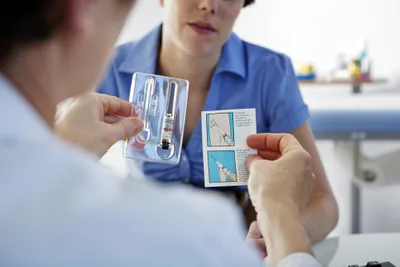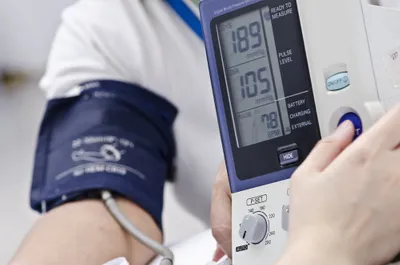Next to your doctor, your pharmacist can be your best friend when it comes to seeking health solutions. Physicians can sometimes be inaccessible or expensive, so having a good relationship with a pharmacist who cares can go a long way.
Those who work behind the counter at pharmacies are also very knowledgeable in a variety of ways relating to your health, and also know how certain medications can interact. In the spirit of American Pharmacists Month in October, Here are six ways pharmacists can help you stay healthy…
1. Dispensing Medication Knowledge
Sure, many prescriptions come with 7-pages of instructions with every possible side effect listed somewhere in small print. However, your pharmacist also knows what medications you’re already on, and can give you a quick answer regarding drug safety and dosage.
Your pharmacist can also advise you on what time of day is best to take a certain drug, and if it should be taken with a meal. You can even request certain “easy open” containers if you’re arthritic or can’t open traditional childproof versions, and your pharmacy can safely dispose of your unused medications.
2. Reducing Drug Costs
Pharmacists can help save you money while saving your health. For example, according to the American Pharmacists’ Association (APA), a good pharmacist knows there are certain rebates available for prescriptions that could be worth a lot to you.
The APA talks about EpiPens in particular (which have skyrocketed in price in recent years), explaining that if insurance doesn’t cover the full costs, the copay amount can be unmanageable for some. However, some health plans allow patients to use manufacturer coupons, reducing the copay dramatically, notes the source.
3. Administering Immunizations
You don’t have to see a doctor to get a routine vaccine for yourself or your family. Pharmacists in the U.S. are licensed in all 50-states to deliver immunizations, according to the American Association of Colleges of Pharmacy.
The Centers for Disease Control and Prevention (CDC) recently praised pharmacists for their role in providing routine flu vaccines, as well as shots for other health problems (such as shingles) that are preventable. Pharmacists can also assess your particular health needs and recommend particular vaccines.
4. Aiding in Smoking Cessation
Pharmacists can help you butt out once and for all, which is one of the best moves you can make to improve your overall health and extend your life expectancy.
The CDC notes that pharmacists can play “a key role” in curbing smoking, “The number one cause of preventable death and disease in the United States.” Pharmacists can help explain how certain health conditions are connected to smoking, and outline some of the medications (and over-the-counter products) that are designed to help curb cravings.
5. Blood Pressure Monitoring
Blood pressure problems are something many Americans have (with or without symptoms), but typically you don’t need to sit in a doctor’s waiting room to get up-to-date results. Many U.S. pharmacies accept walk-ins when it comes to blood pressure testing.
Some pharmacies have staff such as nurse practitioners at the ready to help you with your testing and to answer your questions. The pharmacy can help you with next steps whether it’s connecting you with a doctor for a follow-up, and can help suggest lifestyle changes to aid in lowering your blood pressure to safe levels.
6. Family Planning Promotion
Pharmacies can be a major player in helping promote family planning knowledge, with over-the-counter contraceptives available. Meanwhile in California and Oregon, pharmacists can actually prescribe and dispense various forms of birth control according to Pharmacy Times.
In California, women of any age can access these services without an ID check, notes the source. The information also won’t be shared with anyone other than the patient regardless of his or her age, it adds. “This is an enormous step forward in increasing access to birth control,” notes the Times.









